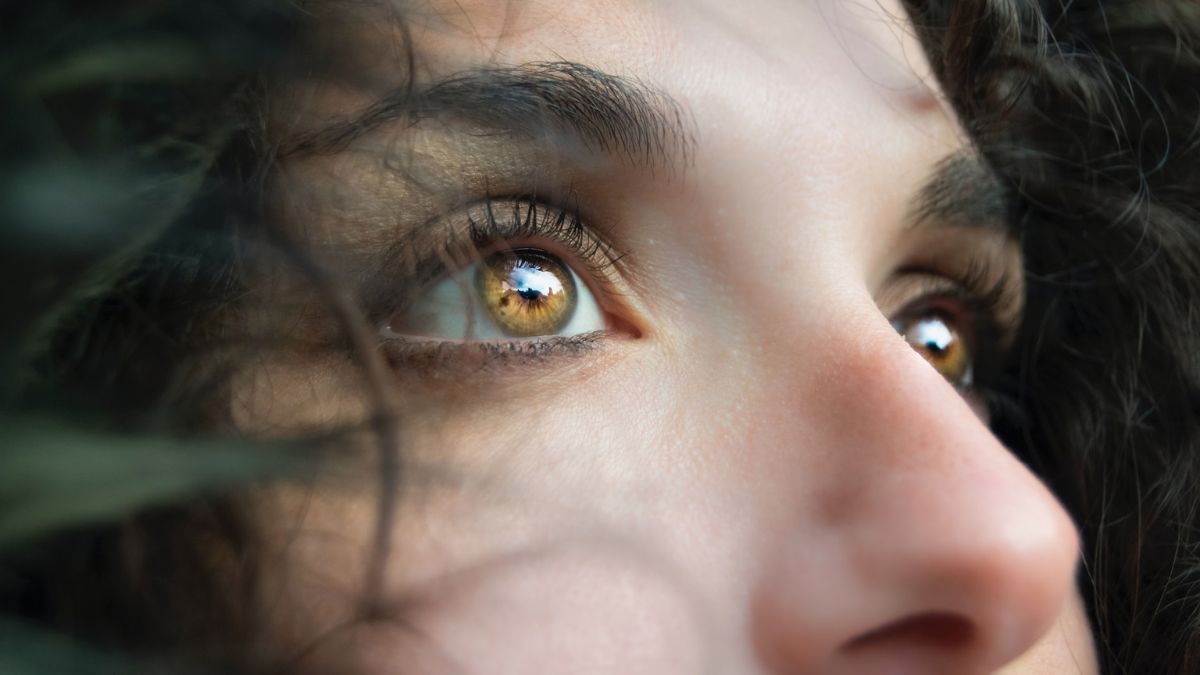“Glowing Eyes” is a subtly dark exploration of identity, social pressures, and mental health struggles. The lyrics focus on how a state of insecurity, despair, and escapism can become bizarrely comforting, which can keep us trapped in bad places. In addition, this song manages to hint at the possibility of salvation from pain by finding your true self.
Originally, “Glowing Eyes” was created for the now-discontinued Regional At Best album. It now serves as the 13th track to Vessel, which is a hybrid of older songs and songs written specifically for that time. Tyler Joseph has claimed that all songs on Vessel were based on an “introspective” approach to lyricism, although the specific inspiration behind “Glowing Eyes” is unknown.
In this article, we’ll perform an analysis of these cutting lyrics to discover their intended meaning. We’ll also take a look at the story behind the song and the human themes that make it accessible to anyone. Without further ado, let’s get started!
“Glowing Eyes” Lyrics Meaning
The lyrics begin by talking about the process of socialization, by which very different individuals begin to conform to social norms and examples in childhood. This is largely a good thing, but it does leave us as “stranger creatures” than our original selves in many ways. The main example of this is that we become very sensitive to the judgments of others. Keep this in mind – it will come back later.
The next part of verse one talks about dying. Confidently, Joseph asserts that people “have romantic fantasies about what dying truly is.” How does this line connect to the first? I think it is because, though we don’t like to admit it, we sometimes view death as an escape.
What is it an escape from? The judgments of society I mentioned earlier. This is what is meant by “falling off the grid.” Sever yourself from your fellow men, isolate yourself, and live on self-reliance. It may have heavy costs, but it also allows us to regain the authentic self we may have lost during socialization. Death, in a troubling way, can become an extreme version of this.
With that dreary backdrop, we move into the pre-chorus. We’re told that we “live for the night’s decor,” continuing the theme of humanity’s strange attraction to darkness. This is because it “reveals what we dream of” – it’s the call of the void.
In the chorus, the pressures of society have not yet driven Joseph to seek death, but they have driven him into a dark room. “Someone at the door” appears and calls for help, but Joseph is paralyzed. The “glowing eyes” (which represent the internalized, penetrating expectations of society) keep him reliant on a limited image of himself.
Even though this might seem horrible, it is oddly comforting. He’s “holding on” to what he knows, although he knows he must “let go” of these things eventually. This speaks to the struggle to find one’s authentic identity. The choice is clear: Stay here in my crippled state, or shed society’s “glowing eyes” and answer the call of my true self.
For now, Joseph fails to answer the call. Instead, he’d rather “play a song” for the glowing eyes and keep them satisfied. Doing this is making him miserable, and he knows it, but it’s just too familiar to abandon.
Verse two, however, begins to tell a different story. Joseph begins criticizing the fictitious “ideal” people of society’s norms. By saying, “I know people who know people who are flying straight,” he’s poking fun at the myth of the “normal person.”
Joseph is torn; he can’t participate in the charade, but (as the chorus showed) he’s also unable to abandon it completely. For now, he sits in “rooms of depression” to isolate himself. That way, at least he doesn’t have to pretend.
The structure of the song, from this point, includes a chorus, a bridge, and another chorus. As we’ve seen, the choruses end pessimistically. However, sandwiched between the two final choruses is a very optimistic bridge. This serves to give the listener a clue about the way out.
The bridge’s solution is simple: Go back out into society as a new person, not the person they expect. Instead of ignoring your true self’s call for help, answer the call and embrace him. This is why the lyrics say, “This room’s far too dark for us to stay around.” The “us” refers to Joseph’s current self and his inner self, whom he is now setting free.
In summary, “Glowing Eyes” is about the immense pressure of expectations and the individual’s attempts to escape them. This universal message is why the song has earned the adoration of its fans.
The Story Behind “Glowing Eyes”
As mentioned previously, “Glowing Eyes” was originally written for Regional At Best, which is now discontinued. Some songs from Regional At Best were selected for inclusion on Vessel; others were not. The fact that “Glowing Eyes” was included may tell us something about its story.
For example, in this interview, Tyler Joseph claimed that the songs on Vessel were written through an “introspective” songwriting approach. He also touches on his belief that love is not a stronger emotion than fear, which is also implied in “Glowing Eyes.” Although we’re discussing two different albums, it seems that Joseph’s headspace bled from one into the other. See the full interview below.
The specific inspiration behind “Glowing Eyes” is unknown, but the process of its creation appears to have followed suit with the rest of Vessel. Apparently, fans loved the result. While “Glowing Eyes” is not a single, it remains one of the most beloved songs in the Twenty One Pilots catalog for fans.
The next time you play this deceptively upbeat tune, let these pieces of background information bring it to life!

